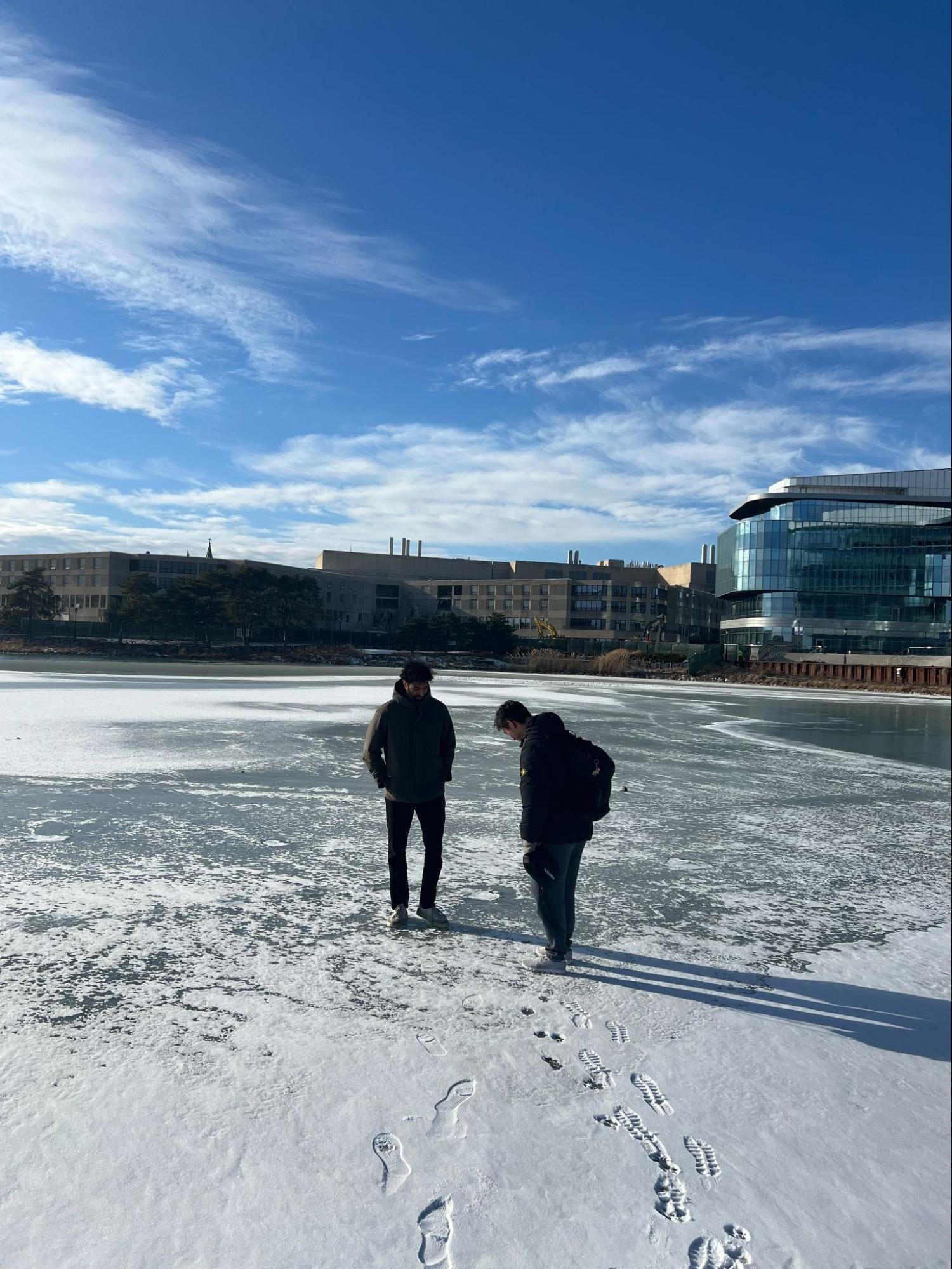Hi, I’m Kedar Thiagarajan, a third-year PhD student at Northwestern University, where I’m advised by Dr. Fabian Bustamante. My research focuses on Internet measurement and the application of machine learning to networking problems.
I didn’t start out in this field, I actually entered undergrad as a biology major. But after some time spent in a lab studying rat brains, I realized it wasn’t the right fit. I pivoted to computer science, graduated in 2019, and spent the next three years in industry at companies like Meta and VMware. I returned to academia in 2022 to pursue a PhD with the goal of tackling real-world networking problems through research.
I joined IPInfo because I was excited about the opportunity to apply the systems and methods I’ve developed in an industry context — especially one that reaches Internet-scale. My current research focuses on extracting geographic information from Internet hostnames, and this internship was a chance to see what that looks like when deployed at scale.
What I’m Working On
At Northwestern, I’ve been building a system alongside my advisor Fabian Bustamante and co-author Esteban Carisimo for applying Large Language models to the problem of extracting geographic location hints from reverse DNS (rDNS) hostnames. The idea is simple: many networks embed geographic hints in their hostnames — ranging from straightforward patterns like chi01 for Chicago to more subtle ones like northlake.il — and if we can automatically identify and decode these patterns, we can substantially enhance IP geolocation accuracy and coverage. This is especially important for geolocating network infrastructure, where traditional methods like RTT-based triangulation often fall short, as many routers and middleboxes block pings or traceroutes, rendering these techniques ineffective.
IPInfo is exploring how this method can augment their geolocation pipeline. My role is to test this system against real-world data and help the team understand its potential to increase coverage and accuracy, particularly for IP addresses that are otherwise hard to locate precisely.
My Day At Work
Morning
Most mornings start with coffee and a simple breakfast: eggs, Greek yogurt with fruit, and some bread. Once I'm done eating, I take a short walk to the office; usually along the lake if Chicago weather cooperates:

After that, I get ready for the day’s meetings, I review my notes from the previous day, and prepare important questions I need answered to proceed with my work. We kick off with a 10 a.m. team sync where we check in on what everyone’s working on and talk about directions that the team will be taking in the coming week. Our research team meets transitions soon after to dive deep into technical discussions. We’ll troubleshoot ideas, review implementation details, and often brainstorm about upcoming paper submissions.
Noon
After the morning meetings, I usually head to the gym across the plaza for a midday workout. It’s quiet around that time, and I find that getting in some exercise clears my head for the rest of the day. I grab lunch afterward and then start prepping for a deep work session.
Afternoon
I use the afternoon for focused work: reading papers, sketching out experimental ideas, debugging model outputs, or pushing new code. I keep a running list of open questions and tasks so I can revisit them with the team the next day. I usually finish up the day with a short write-up of what I accomplished and what’s next.
Takeaways So Far
One of the most eye-opening aspects of this internship has been seeing how IPInfo handles data at a scale that most academic researchers rarely encounter. The engineering that goes into collecting, cleaning, and serving this data efficiently is incredible. It reminded me that no matter how sophisticated your models are, they’re only as good as the data that powers them.
I’ve also really appreciated having access to IPInfo’s historical datasets. Being able to analyze changes in hostnames over time, at daily or weekly resolution, has opened up new research directions I hadn’t considered before.
This internship has been an ideal blend of research and real-world application, and I’m excited to see how our work here can help improve IP geolocation at Internet scale.
Interested in being a research intern in 2026? Reach out to our research team.
About the author

Kedar is a 2025 IPinfo Research Intern. He’s also a a third-year PhD student at Northwestern University in Chicago focusing on internet measurement and machine learning for networking problems.
